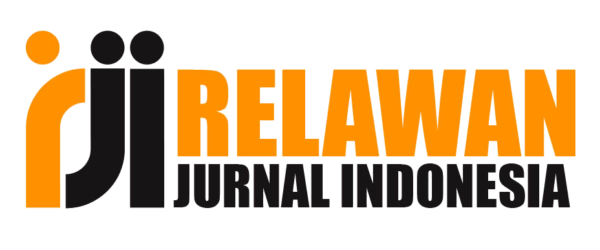The influence of problem based learning (PBL) model on high school students' critical thinking skills on momentum and impulse material
Abstract
Keywords
Full Text:
PDFReferences
Birgili, B. (2015). Creative and critical thinking skills in problem-based learning environment. Journal of Gifted Education and Creativity, 2(2), 71–80. https://doi.org/10.18200/JGEDC.2015214255
Hue, J.-P. (2021). A study on the effectiveness of PBL and MAKER classes based on flipped learning. Journal of Problem-Based Learning, 1–9. https://doi.org/10.24313/jpbl.2021.00038
Mulyanto, H., Gunarhadi, & Indriayu, M. (2018). The effect of problem-based learning model on student mathematics learning outcomes viewed from critical thinking skills. International Journal of Educational Research Review, 3(2), 37–45.
Mundilarto, & Ismoyo, H. (2017). Effect of problem-based learning on improvement physic achievement and critical thinking of senior high school students. Journal of Baltic Science Education, 16(5), 761–780.
Nurazizah, S., Sinaga, P., & Jauhari, A. (2017). Profil kemampuan kognitif dan keterampilan berpikir kritis siswa SMA pada materi usaha dan energi. Jurnal Penelitian & Pengembangan Pendidikan Fisika, 3(2), 197–202. https://doi.org/10.21009/1.03211
Pane, A., & Dasopang, M. D. (2017). Belajar dan pembelajaran. Jurnal Kajian Ilmu-Ilmu Keislaman, 3(2), 333–352.
Partnership for 21st Century Skills (P21). (2009). P21 framework definition. Wahington, DC: Partnership for 21st Century Skills.
Pusparini, S. T. (2017). Pengaruh model problem based learning (PBL) terhadap kemampuan berpikir kritis siswa pada materi sistem koloid [Skripsi, Fakultas Ilmu Tarbiyah dan Keguruan, UIN Syarif Hidayatullah].
Susilawati, E., Agustinasari, A., Samsudin, A., & Siahaan, P. (2020). Analisis tingkat keterampilan berpikir kritis siswa SMA. Jurnal Pendidikan Fisika dan Teknologi, 6(1), 11–16. https://doi.org/10.29303/jpft.v6i1.1453
Syahputra, E. (2018). Pembelajaran abad 21 dan penerapannya di Indonesia. Prosiding Seminar Nasional SINASTEKMAPAN, 1276–1283.
Velly, D. (2017). Peningkatan aktivitas dan hasil belajar siswa melalui penerapan model problem based learning dalam pembelajaran fisika di kelas XI MIPA 1 SMA Negeri 12 Pekanbaru. Jurnal Geliga Sains, 5(2), 88–94.
Wayudi, M., Suwatno, & Santoso, B. (2020). Kajian analisis keterampilan berpikir kritis siswa sekolah menengah atas. Jurnal Pendidikan Manajemen Perkantoran, 5(1), 67–82. https://doi.org/10.17509/jpm.v4i2.18008
Zubaidah, S. (2016). Keterampilan abad ke-21: Keterampilan yang diajarkan melalui pembelajaran. Seminar Nasional Pendidikan, 2(2), 1–17.
DOI: https://doi.org/10.17509/wapfi.v9i2.49664
Refbacks
- There are currently no refbacks.
Copyright (c) 2024 Zahra Amaturrahman Ash shabira

This work is licensed under a Creative Commons Attribution-ShareAlike 4.0 International License.
The Journal Wahana Pendidikan Fisika http://ejournal.upi.edu/index.php/WapFi/ is licensed under a Creative Commons Attribution-ShareAlike 4.0 International License
The Journal WaPFi (Wahana Pendidikan Fisika).
All rights reserverd. pISSN 2338-1027 eISSN 2685-4414
Copyright © Faculty of Mathematics and Science Education (FPMIPA) Universitas Pendidikan Indonesia (UPI)










